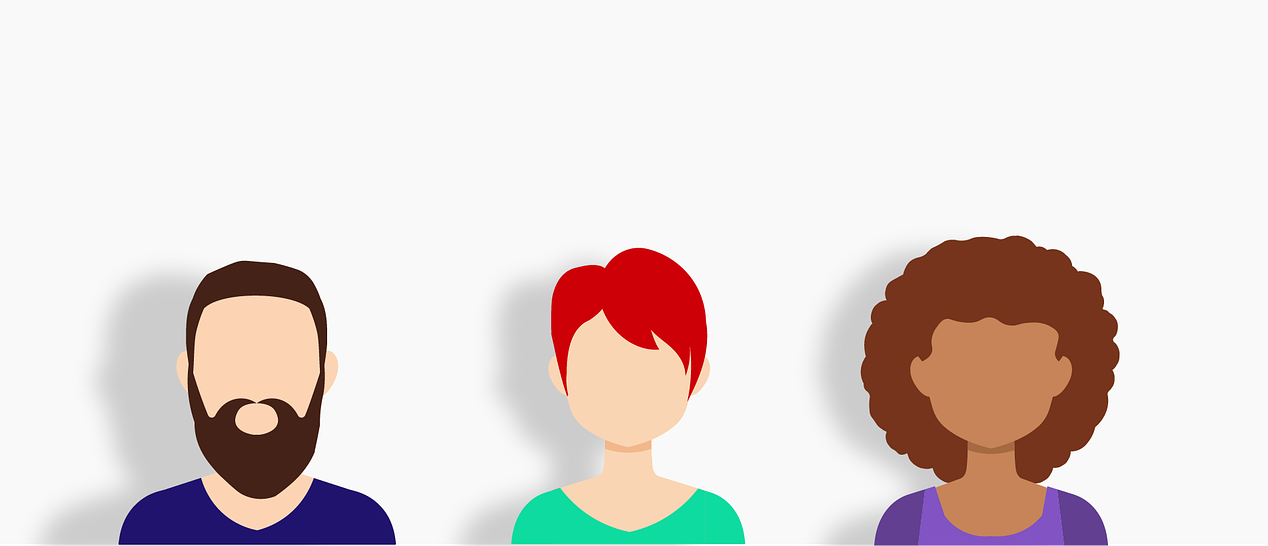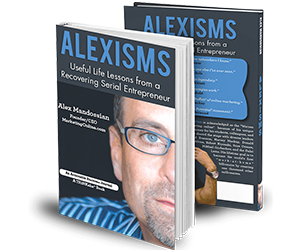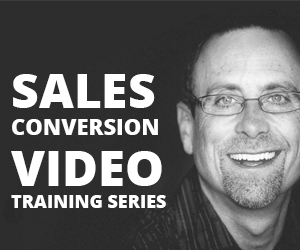What People Find Most Challenging About Selling Their Product…

…is that it’s not about their product.
The best way to fail as an entrepreneur is to start with your product.
If you are going to succeed as an entrepreneur you need to appreciate your ideal customer.
Your Ideal Customer is the representation of your target market = who you sell to the most often.
Knowing that is literal money in the bank.
So many clients come to my consulting firm and say…
“I have a great idea for a product! Can you help me sell it?”
I say…
“No. I won’t help you sell your product until you tell me, in detail, who your target market is.”
When an entrepreneur knows Who they are selling to, they will know How to sell What they want to sell. Period. That is one of the secrets of marketing.
First Who, then How, then What. Not the other way around.
And believe it or not, I’ve had to repeat this message over and over for the last 25+ years as a marketing consultant.
Entrepreneurs get so excited about their message: their book, their webinar, their YouTube channel, and they should be! Their message is why they became an entrepreneur in the first place.
But products and messages have died on the sharp rocks of hope because they did not get into the right hands. They were not seen by the right people.
Spending time getting to know the market your product will most appeal to is more than half the battle. It is the battle. Because that takes real work.
Getting to know your market, your ideal customer, takes granular research. You have to know the right questions to ask. You have to figure out where to ask those questions.
Just look at surveys. Nowadays you are not a business if you don’t have a survey. I just filled out a survey for my health insurance company this morning. Why?
Because health insurance is BIG business and these companies want to know what their customers want and how to improve getting it to them.
Related Post: I Will Show You How To Sell Your Widget
Related Post: The D.E.L.T.A. Sales Process
Related Post: What Is Your Marketing Message Strategy?
Not Just Who…How
But in addition to figuring out all this granular info about Who your ideal customer is you also need to understand How to talk to your ideal customer.
Different personality types receive information differently.
This is particularly important for coaches, trainers and speakers (my target market) because it’s this very information that assists you in addressing what holds your clients back from achievement.
Learning to speak to different types of personalities as part of your market research will help you learn more about your market. But there is another way it will help.
It will also help you with categorizing your lists, which we’ll learn about next week. So stay tuned.
There are four main types of personality and they all receive the same information in different ways. Knowing this about your client base will help you sell anything to anyone in any environment.
Whether you’re in a one-on-one situation or a conference room full of people you will be able to address every type of personality so they all feel taken care of and pampered rather than sold.

Addressing each type of personality while you’re selling is crucial to a successful sale as well as categorizing your lists and client base.
When you know who you’re speaking to you will know how to sell to them.
Now here’s the thing, you will almost never know what type of personality you’re dealing with. You could guess, but that is risky and it takes too much time to make that kind of assessment one-on-one or in a seminar.
So how do you speak to a personality if you don’t know which personality you’re speaking to?
You speak to every personality at once.
You use a formula to always address everyone in the room. You don’t leave anyone out.
“Now I know the exact triggers to speak to my prospect’s deepest inner motivations — They virtually beg to join my premium programs and I don’t have to use high pressure tactics… I don’t feel like I’m selling anything!”
The Formula
There are four ‘buying’ personas based on the Myers–Briggs Type Indicator. This indicator doesn’t tell you what types of products a personality will buy. It indicates how each personality receives information.
That’s an important distinction. Knowing how a person receives information means you can tailor that information to optimize absorption of that information.
It doesn’t matter if you’re already selling or you’re still researching your ideal customer learning to address each of these personalities is a fundamental key to knowing your market.
If this is all new to you, you can find out more about the Meyers-Briggs Type Indicator here.
This post is about the psychology of selling and buying and it is important info for every entrepreneur to know.
Let me be clear. This knowledge is not about how to sell to a client or customer, although this will help. This knowledge is about how to speak to them to create certainty for your product.
Once you’ve instilled certainty about your product, your team, and you, you’ve all but guaranteed the sale.
This information will give you the confidence to know how to address anyone and everyone.
Personality Type One: The Competitive
The first persona that I want you to focus on is the Competitive personality. The Competitive decides quickly and bases that decision on logic. So they are quick and logical decision makers. Knowing what you’re selling is the first (and sometimes only) info they need from you to feel certain.
So how that relates to you is you’ve got to tell them right away, within the first couple of minutes. If you’re writing copy that means the first couple of sentences.
What the heck are you selling?
To speak to your Competitives be quick and get it out there fast.
They need to know the context of it. They need to know what it is. For example, don’t start copy or your live presentation or your D.E.L.T.A. process with the theory of your product. Don’t start with ‘why’ your product is good.
Remember, these people decide fast. Don’t talk about who else uses it. Don’t talk about how it works. Take care of the Competitive first and start with ‘what.’
Those guys are great, but a lot of times they’re ignored. If they don’t get the info they get impatient, and they leave. And that’s a shame because they bring a lot of energy to a room. But they will leave pretty fast if they’re ignored.
Now, I come off as emotional to a lot of people. But I decide on logic and I decide quickly. I’m a Competitive. That’s how I show up. If I don’t get my answers within a few minutes I’m out. I’m impatient. I move on. Don’t ignore us. Just get us out of the way first.
Personality Type Two: The Spontaneous
The second type of personality is the Spontaneous. They are quick and emotional. They decide fast and with emotion. Imagine what your heart feels like when you press on the gas and everyone is watching you pass them on the freeway.
That’s a caricaturization of the Spontaneous buyer type, quick and emotional. The Spontaneous needs to know why they need your product or service as opposed to someone else’s. You need to address the ‘why’ right after you address the ‘what.’
You’ll sell to a Spontaneous differently than you will a Competitive. The way you speak to a Spontaneous is you ask ‘why.’ For instance, ”Okay, ma’am, why do you drive? Do you drive for transportation, or do you drive because you love to drive? Why do you want a new car?”
She might say, “Just for transportation.” You say, ”Great. Then, this BMW M4 convertible, custom made from Germany at $90,000 is not for you. You can get similar accessories and just as good of a car and spend $40,000 less with something else.” That’s how you sell a Spontaneous.
You address the ‘why’ right at the beginning of the conversation, after you get the ‘what’ out of the way.
Personality Type Three: The Humanistic
The Humanistic personality type is slow and emotional. This personality needs to know the who in the process. Who else has benefited from your product? What kind of person uses your product? Be specific.
This is where testimonials are very effective. Testimonials tug at your heartstrings. Testimonials address ‘who’ uses your product or service. And testimonials are often emotional so they appeal to Humanistic personalities.
I attract a lot of Humanistics to my trainings online and offline. The humanistic is the largest group that I attract when I teach. And it’s because they feel my heart when I’m on stage or in a room. I’m very passionate when I train because I believe in what I’m teaching. Humanistics respond to my passionate approach.
Although, I’m a competitive, I know how to communicate with my heart. I don’t make decisions from an emotional place. And I don’t use my ‘gut.’ I make them using logic, but I know how to talk to people who make decisions based on emotion.
Humanistic personality types are slower to make decisions. And they make decisions from an emotional place. So you can’t push them because they’ll close up if they don’t feel it’s a safe environment. Go slow and address the ‘who.’
Who else has used your product or service with success? Who does your product benefit? Those are the types of questions to address for a Humanistic. Address them after you address the ‘what’ and ‘why’ questions.
Related Post: I Will Show You How To Sell Your Widget
Related Post: The D.E.L.T.A. Sales Process
Related Post: What Is Your Marketing Message Strategy?
Personality Type Four: The Methodical
Finally, my favorite, the Methodical personality type. This person decides slowly and based on logic, slow and logical. This is where you provide your case studies. Case studies are evidence-based and give the methodical personality enough logic to make a decision. They Want to know how the product works.
Methodical personalities thrive with a lot of details. So if you supply them with enough case studies and detailed information, you’ll get a Methodical to say ‘yes.’
I also attract Methodical personalities in my business because I address their needs. I offer a lot of logical reasoning and case studies. So with a Humanistic get into the ‘how’ of your product or service.
Prove how it works with specifics and details. Do this as the last step in your stage presentation, your webinar or your D.E.L.T.A. process. Do this after you address the other three.

Do Your Research
It doesn’t matter if you’re one-on-one or in a room full of people. You want to learn to address each of these questions: what, who, why and how, as fast as possible.
Why?
Because you won’t know what kind of buying personality you’re engaging. And in a room full of people you’ll most likely have every type of buyer.
Address each quadrant Swiftly and in Correct Order –
- Describe what product or service you’re selling or advertising.
- Outline why the customer or client needs it.
- Address who the ideal buyer is and who benefits from the product with testimonials.
- Talk about how to use the product or service showing case studies, and details and how people benefit.
You can do this on stage, one-on-one, online in a webinar, and in your written sales copy. Get in the habit of addressing each personality type and watch what happens to your sales growth.
This is all a part of market research.
Not only will you sell more but people will respond better to you even if they don’t know why. You’ll be creating certainty about your product or service.
You will also be instilling certainty about yourself and your team. In turn, your prospects will appreciate that you have taken the time to address their concerns.
The Competitive asks what. The Spontaneous asks why. The Humanistic asks, who. The methodical asks, how. This will increase your market knowledge and expertise and ability to teach others.
Do You See How Applying This System Could Be The Best Decision You Make This Year?
Can you see the possibilities of what I’m teaching you here?
Using this new information, think about where your business will be in 3 years with this knowledge.
The Wrap Up
You cannot escape the important work of market research. Your discoveries are important information that help you create better products and know how to speak to your ideal customer.
So how well do you know your ideal customer?
How do you incorporate this new information when researching your market?
Do you even know where to start your research?
I’ve got a template for that! If you’re stuck on your market research I’ve got a worksheet that gives you all the information to learn and all the questions to ask. All you have to do is fill out the information.
Use this template to create a comprehensive picture of who you are selling to and how to sell to them. Business is not just about having a good or even great product. It’s about knowing who your market is and speaking directly to them. Entrepreneurs are people’s people. So start with the relationship, not the thing. And success will follow YOU, not the other way around.
All good wishes.
Have you done your market research? What’s the most surprising thing you’ve learned about your market? LMK!













